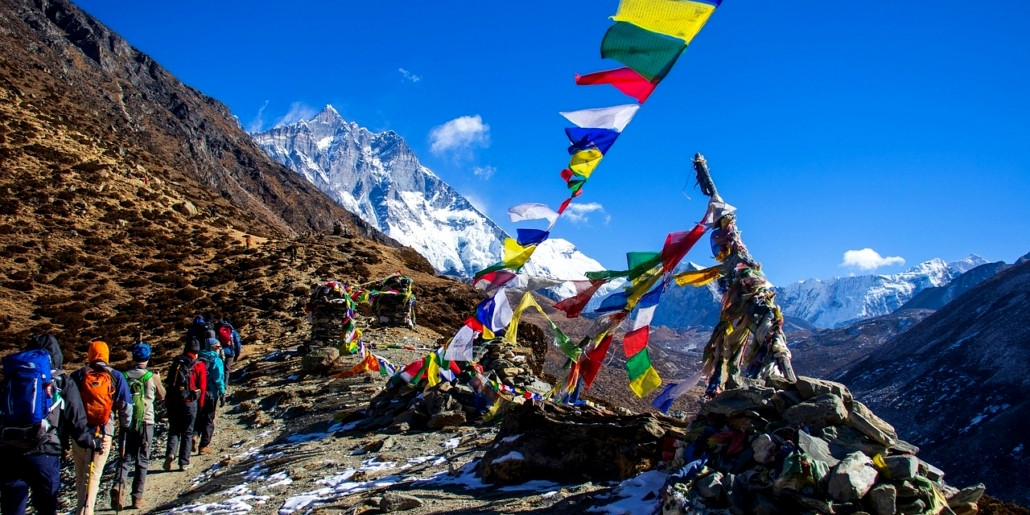Why is Sustainable Tourism in Nepal Important?
Sustainable tourism in Nepal is crucial for several key reasons:
-
Environmental Protection: Nepal is home to some of the world's most stunning natural landscapes, including the Himalayan mountain range, diverse wildlife, and unique ecosystems. Sustainable tourism helps protect these natural resources from the negative impacts of overtourism, such as pollution, habitat destruction, and resource depletion.
-
Cultural Heritage Preservation: Nepal has a rich cultural heritage, with ancient traditions, religious practices, and historical sites. Sustainable tourism ensures that these cultural treasures are respected and preserved, allowing tourists to learn from and appreciate them without causing harm or disrespect.
-
Economic Sustainability: Tourism is a significant part of Nepal’s economy. Sustainable practices ensure that the benefits of tourism are distributed equitably among local communities, providing them with economic opportunities and improving living standards without exploiting the country's resources.
-
Community Empowerment: By promoting community-based tourism, sustainable practices empower local communities, giving them a voice and stake in tourism development. This approach fosters a sense of ownership and pride among locals, leading to better management of tourist areas and resources.
-
Global Climate Change Mitigation: Sustainable tourism in Nepal plays a role in combating global climate change. By encouraging eco-friendly practices, like reducing carbon footprints and promoting the use of renewable energy, it contributes to global efforts to mitigate climate change.
-
Promoting Responsible Travel Behaviour: It educates tourists about responsible travel behaviour, fostering a culture of respect and mindfulness towards nature, wildlife, and different cultures. This has a ripple effect, encouraging sustainable practices globally.
-
Long-term Viability of the Tourism Industry: Sustainable tourism ensures the long-term viability of the tourism industry in Nepal. By protecting its natural and cultural assets, the country remains an attractive destination for future generations of travellers.
Sustainable tourism in Nepal is vital for preserving its unique natural and cultural assets, supporting the local economy and communities, contributing to global environmental efforts, and ensuring the long-term sustainability of its tourism industry.
Diverse Eco-Tourism Opportunities
Nepal's diverse eco-tourism opportunities stem from its unique geographical and biological diversity, making it a haven for eco-tourists. Here are some key aspects:
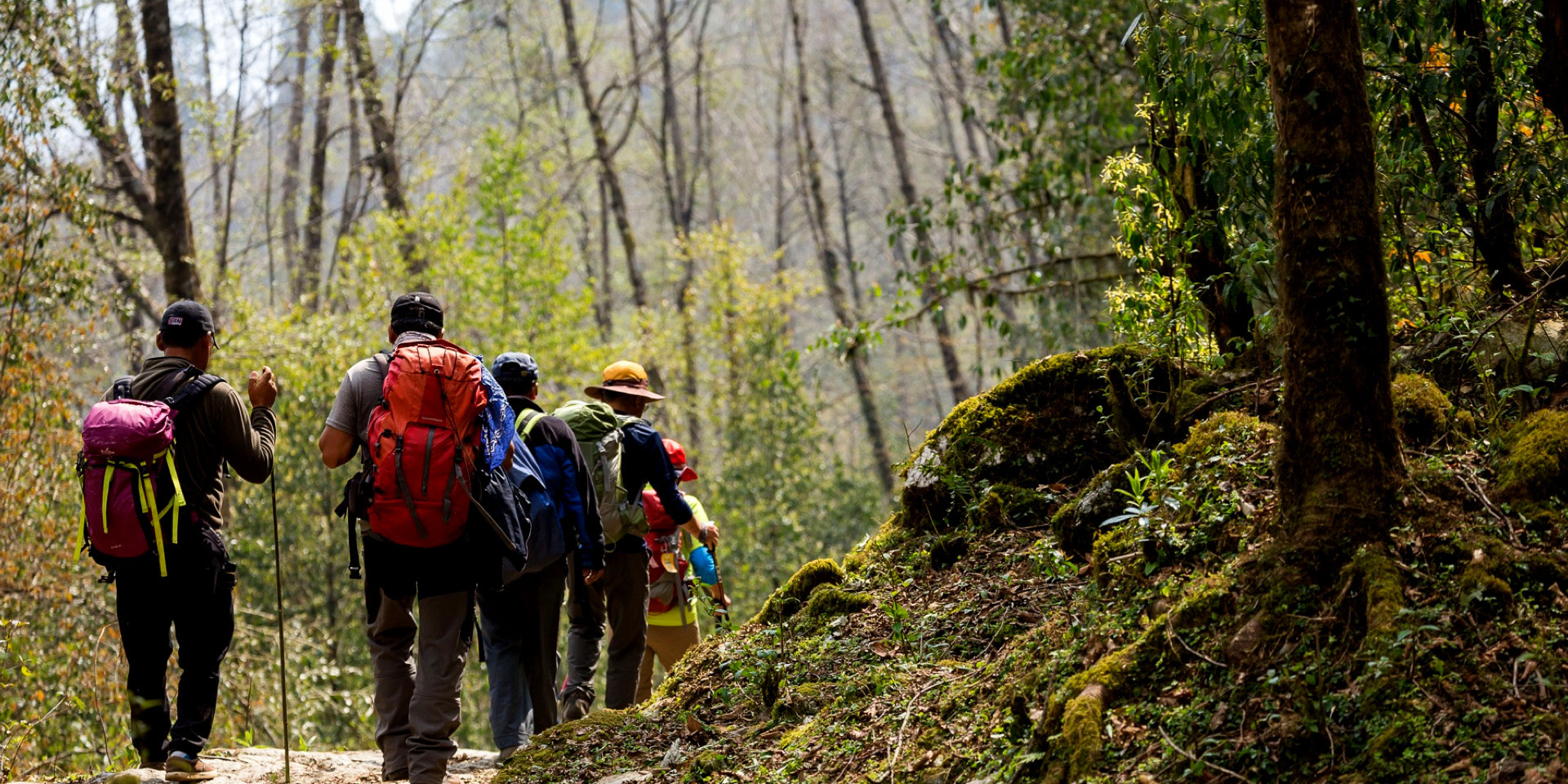
-
Varied Ecosystems: Nepal's landscape ranges from the Terai lowlands, rich in subtropical flora and fauna, to the high-altitude Himalayan region, home to unique alpine ecosystems. This diversity allows for a wide range of eco-tourism activities suitable for different interests and fitness levels.
-
Wildlife Safaris and Bird Watching: The national parks in the Terai region, like Chitwan and Bardia, offer incredible wildlife safaris. Visitors can spot rare species such as the Bengal tiger, one-horned rhinoceros, and various deer species. Nepal is also a bird watcher's paradise, with over 850 bird species, including several endemic and endangered ones.
-
Trekking and Hiking: The Himalayas offer some of the world's best trekking opportunities, from the famous Everest Base Camp and Annapurna Circuit to less-traveled paths. These treks offer breathtaking views and a chance to experience high-altitude ecosystems.
-
Cultural Immersion: Many eco-tourism activities in Nepal include cultural elements, such as stays in traditional villages, participation in local festivals, and visits to ancient monasteries, which allow travellers to experience Nepal's rich cultural heritage.
-
Conservation Efforts: Visitors can participate in conservation efforts, such as reforestation projects, wildlife monitoring, or educational programs that teach sustainable practices to local communities.
-
Adventure Sports: For those seeking an adrenaline rush, Nepal offers eco-friendly adventure sports like white-water rafting, paragliding, and mountain biking, which provide an eco-conscious way to experience Nepal's landscapes.
-
Yoga and Wellness Retreats: In line with eco-tourism, Nepal also hosts various wellness retreats offering yoga, meditation, and Ayurveda in serene, natural settings. These retreats focus on personal well-being while being mindful of the environment.
-
Homestays and Eco-Lodges: Staying in eco-lodges or with local families through homestays provides an authentic experience while ensuring that tourism benefits go directly to local communities and have minimal environmental impact.
-
Agricultural Tourism: Visitors can also engage in agricultural tourism, which includes visits to organic farms, participation in farming activities, and learning about traditional agricultural practices.
-
Educational Tours: Educational tours focusing on ecology, conservation, and sustainable living are also a significant part of Nepal's eco-tourism, attracting students, researchers, and those interested in environmental sciences.
These eco-tourism opportunities in Nepal not only offer a chance to explore the natural beauty and cultural richness of the country but also contribute to the conservation of its environment and the well-being of its people.
Community-Based Tourism Initiatives
Community-Based Tourism (CBT) initiatives in Nepal are pivotal in promoting sustainable tourism by directly involving local communities in tourism activities. These initiatives aim to empower locals, preserve cultural heritage, and ensure that the benefits of tourism are distributed equitably. Here are some key aspects of CBT in Nepal:
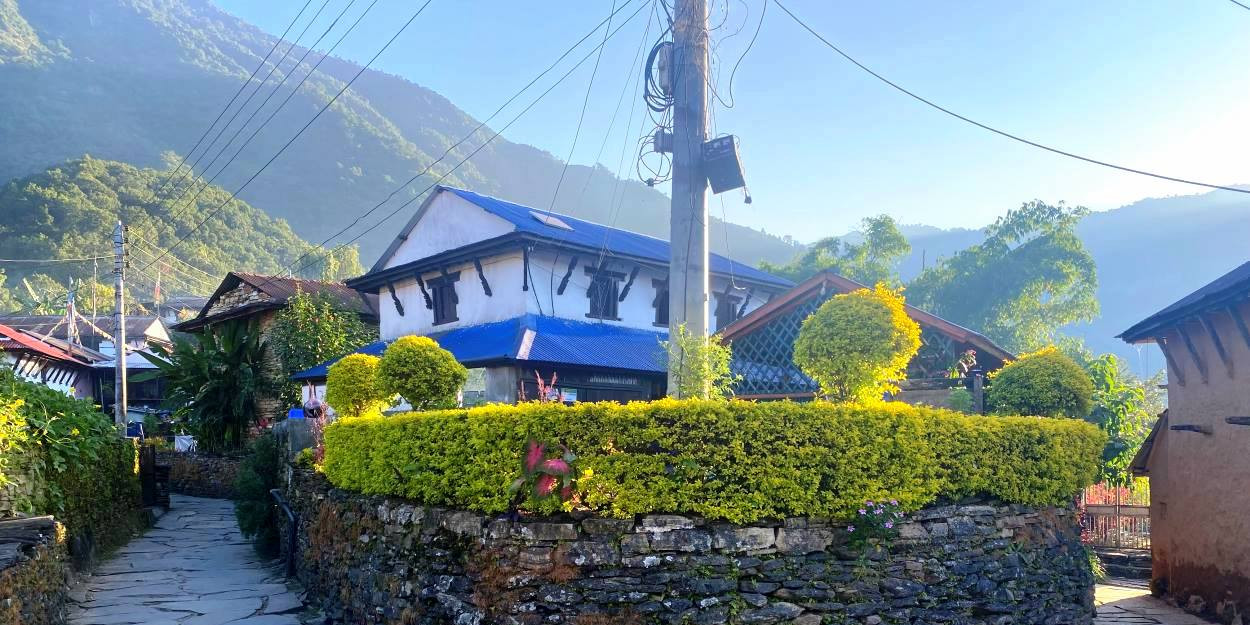
-
Local Homestays: One of the most significant aspects of CBT in Nepal is the promotion of homestays. Travellers stay with local families, experiencing authentic Nepalese hospitality, cuisine, and daily life. This not only provides a unique cultural experience for tourists but also creates a source of income for local households.
-
Cultural Exchange Programmes: These programmes allow tourists to engage in local traditions and customs, including festivals, dances, and ceremonies. This interaction promotes cultural understanding and respect while providing economic benefits to the community.
-
Community-Led Eco-Tourism Projects: Many communities in Nepal have developed eco-tourism projects that showcase their local environment. These include guided nature walks, bird-watching tours, and conservation activities, all led and managed by locals.
-
Skill-Sharing and Educational Workshops: Tourists can participate in workshops conducted by local artisans and craftsmen, learning skills like pottery, weaving, or traditional cooking. This facilitates skill sharing and provides an additional income stream for local craftsmen.
-
Community Trekking Routes: Some trekking routes in Nepal are developed and managed by local communities rather than larger commercial operators. This ensures that a significant portion of the trekking fees go directly to the community, funding local development projects.
-
Agricultural Tourism: Tourists can engage in agricultural activities like planting, harvesting, and learning about traditional farming practices. This type of tourism helps to preserve agricultural heritage and provides insights into rural Nepalese life.
-
Sustainable Development Projects: Many CBT initiatives are linked with sustainable development projects, such as building schools and health clinics or improving local infrastructure. Tourists can contribute to these projects either financially or through volunteer work.
-
Local Employment Opportunities: CBT initiatives prioritise hiring local staff for tourism-related jobs, ensuring fair wages and employment opportunities for community members.
-
Environmental Conservation Efforts: Communities involved in CBT often participate in environmental conservation efforts, such as waste management, reforestation, and wildlife protection, promoting environmental stewardship among both locals and tourists.
-
Preserving Local Traditions: By showcasing traditional arts, music, and architecture, CBT initiatives help preserve and celebrate the unique cultural identity of different Nepalese communities.
Community-based tourism in Nepal not only enhances the tourism experience by offering deeper, more authentic cultural interactions but also plays a crucial role in socio-economic development and environmental conservation at the local level.
Responsible Trekking Practices
Responsible trekking practices in Nepal are essential to ensuring the sustainability of its trekking tourism while preserving the natural environment and respecting local communities. These practices encompass a range of measures and behaviours aimed at minimising the negative impacts of trekking. Here are some key aspects:
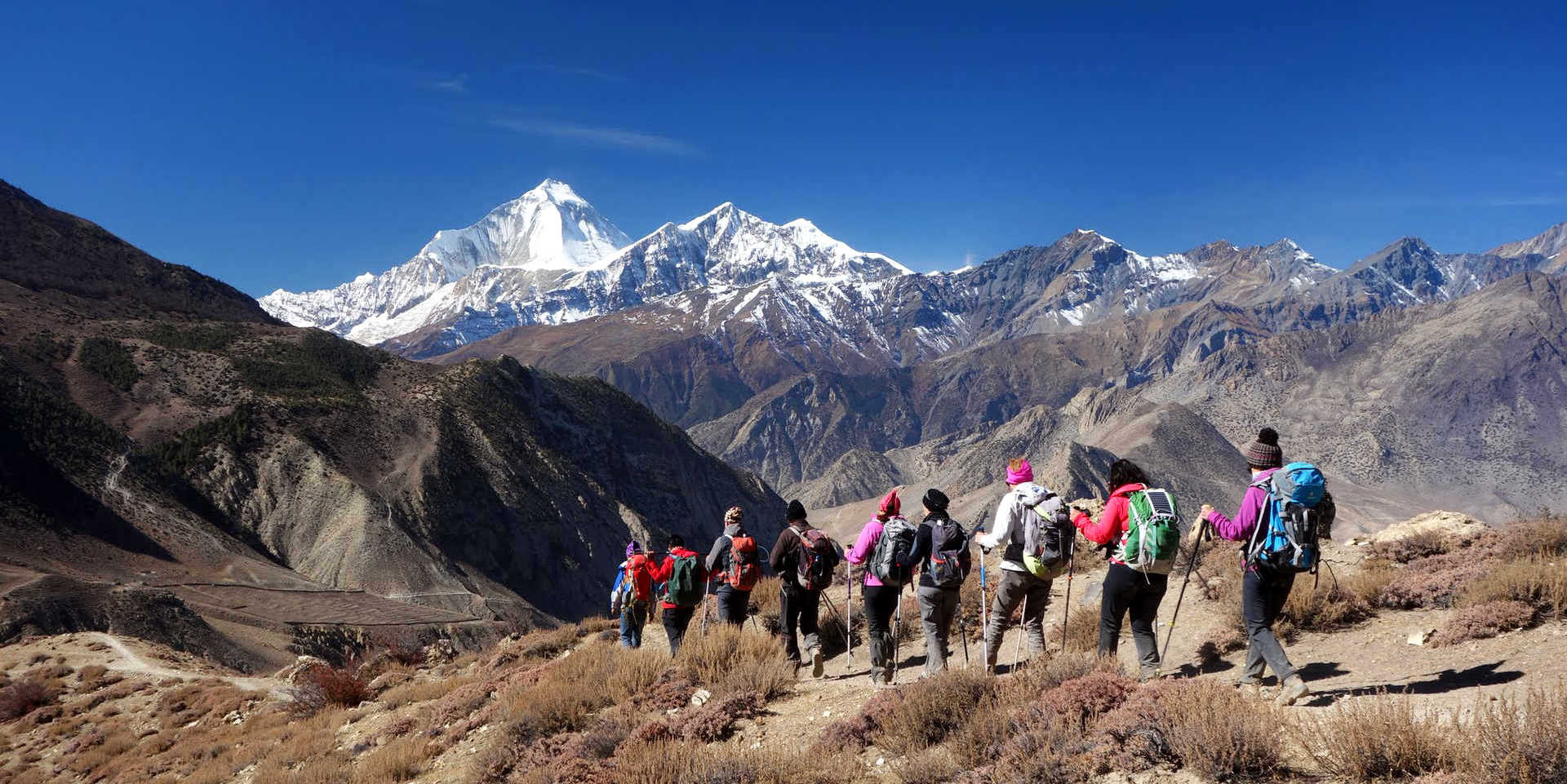
-
Minimising Environmental Impact: Trekkers are encouraged to follow the “leave no trace” principles. This includes properly disposing of waste, avoiding single-use plastics, and not disturbing the natural flora and fauna. Responsible trekkers also stick to established trails to prevent soil erosion and habitat disturbance.
-
Cultural Sensitivity and Respect: Understanding and respecting local customs, traditions, and religious beliefs is crucial. This includes dressing modestly, seeking permission before taking photographs of people, and adhering to local etiquette.
-
Supporting Local Economies: Responsible trekking involves using local services like guides, porters, lodges, and eateries. This ensures that the economic benefits of trekking are distributed within the community, providing a livelihood for local families.
-
Fair Treatment of Porters and Guides: Ensuring that the porters and guides are treated fairly, paid adequately, and equipped properly for the harsh conditions of high-altitude trekking is a key aspect of responsible trekking. Trekkers should choose trekking companies that adhere to ethical standards regarding their staff.
-
Sustainable Travel Practices: Opting for eco-friendly travel options such as using renewable energy sources, staying in eco-lodges, and reducing carbon footprints wherever possible contributes to sustainable trekking practices.
-
Educating Fellow Trekkers: Sharing knowledge and educating others about responsible trekking practices helps promote a culture of sustainability and respect among the trekking community.
-
Participating in Conservation Efforts: Getting involved in or contributing to local conservation efforts, such as reforestation projects or wildlife protection initiatives, can be a part of the trekking experience.
-
Health and Safety Measures: Following proper health and safety guidelines, including acclimatisation to prevent altitude sickness, carrying necessary first aid, and respecting one's physical limits, are vital for responsible trekking.
-
Avoiding Overcrowding: Choosing less popular routes or trekking during off-peak seasons helps reduce the impact of overcrowding on trails and local communities.
-
Water Conservation and Management: Using water purification methods instead of buying bottled water and being mindful of limited water resources in remote areas are important practices.
By adhering to these responsible trekking practices, trekkers can ensure that their journey through Nepal’s magnificent landscapes is enjoyable, sustainable, and beneficial to both the environment and the local communities.
Preservation of Cultural Heritage
The preservation of cultural heritage in Nepal is a vital aspect of sustainable tourism. This small Himalayan nation is rich in cultural diversity, with a mosaic of ethnic groups, languages, traditions, and religious practices. Protecting this cultural heritage while promoting tourism involves several key strategies:
-
Respect for Local Traditions and Customs: Tourists are encouraged to learn about and respect local customs, traditions, and religious practices. This includes appropriate behaviour at religious sites, dressing modestly, and understanding local social norms.
-
Supporting Traditional Arts and Crafts: Purchasing authentic local handicrafts and art directly from artisans helps keep traditional skills alive and provides a livelihood for local communities. This includes textiles, pottery, woodcarving, and metalwork.
-
Promoting Cultural Experiences: Offering cultural tours, workshops, and experiences that educate tourists about Nepal’s heritage helps in its preservation. This could include traditional dance and music performances, art exhibitions, and culinary tours.
-
Restoration and Conservation of Historical Sites: Efforts to restore and conserve temples, stupas, palaces, and other historical structures are crucial. This not only preserves these sites for future generations but also educates visitors about Nepal's rich history.
-
Community-Based Tourism: Involving local communities in tourism helps preserve cultural heritage by allowing them to share their customs and traditions with visitors respectfully and authentically.
-
Documentation and Research: Documenting cultural practices, languages, rituals, and folklore helps preserve this knowledge. Collaborations with researchers, historians, and anthropologists can aid in this effort.
-
Awareness and Education: Educating both locals and tourists about the importance of cultural heritage and the ways to preserve it is crucial. This includes awareness campaigns, educational programmes, and cultural sensitivity training for those working in the tourism sector.
-
Cultural Festivals and Events: Supporting and promoting cultural festivals and events can help keep traditions alive. These events offer tourists an opportunity to witness and participate in unique cultural practices.
-
Ethical Photography and Interaction: Encouraging ethical photography and interactions with local people respects their dignity and privacy. Tourists should always ask for permission before taking photos of people, especially during religious or cultural ceremonies.
-
Regulations and Policies: Implementing and enforcing regulations that protect cultural heritage sites and practices is essential. This includes controlling the number of visitors to sensitive sites and ensuring that tourism activities do not disrupt local life.
By focusing on these aspects, Nepal can ensure that its rich cultural heritage is preserved and respected, allowing future generations of both locals and visitors to appreciate and learn from it.
Environmental Conservation Efforts
Environmental conservation efforts in Nepal are crucial due to the country's rich biodiversity and unique ecosystems, ranging from the high Himalayan mountains to the lush Terai plains. These efforts are especially important in the context of sustainable tourism, which seeks to minimise the negative impacts of tourism on the environment. Key aspects of these efforts include:
-
Protected Areas and Wildlife Conservation: Nepal has established numerous national parks, wildlife reserves, and conservation areas to protect its diverse flora and fauna. These include famous parks like Chitwan National Park and Sagarmatha National Park, which are also UNESCO World Heritage Sites. Conservation programmes focus on protecting endangered species like the Bengal tiger, one-horned rhinoceros, and the red panda.
-
Sustainable Tourism Practices: Efforts are made to promote eco-friendly tourism practices, such as minimising waste, reducing carbon footprints, and using sustainable resources. Eco-lodges and green hotels that utilise renewable energy and implement waste management systems are increasingly popular.
-
Community Involvement in Conservation: Engaging local communities in conservation efforts is crucial. Community-based programmes help educate locals about the importance of protecting their natural environment and involve them in activities like anti-poaching patrols and reforestation projects.
-
Climate Change Mitigation: With the Himalayas being highly susceptible to climate change, efforts are underway to study and mitigate its impacts. Initiatives include research on glacial melting, promoting sustainable agricultural practices, and using alternative energy sources to reduce reliance on wood and fossil fuels.
-
Waste Management in Trekking Regions: The popular trekking regions in Nepal face significant challenges with waste management. Initiatives like the Sagarmatha Pollution Control Committee (SPCC) work to keep the Everest region clean by managing waste disposal and educating trekkers and locals about environmental conservation.
-
Water Conservation and Management: Projects focusing on water conservation are essential in Nepal, where water resources are often scarce. Rainwater harvesting, sustainable water use in agriculture, and protecting water sources from pollution are key efforts.
-
Biodiversity Research and Education: Research and education programmes aimed at understanding Nepal's biodiversity are important for conservation. This includes studies on wildlife, plant species, and ecosystems, as well as public education campaigns about biodiversity's importance.
-
Supporting Reforestation and Afforestation: Tree planting initiatives and forest conservation efforts help combat deforestation, preserve habitats, and maintain ecological balance. These efforts are often combined with eco-tourism activities.
-
Regulatory Frameworks: The Nepalese government and various NGOs work to create and enforce laws and regulations aimed at protecting the environment, controlling pollution, and managing natural resources sustainably.
-
Promotion of Alternative Energy Sources: Encouraging the use of alternative energy sources like solar and wind power reduces the environmental impact of tourism and helps conserve the natural environment.
These environmental conservation efforts in Nepal are essential not only for protecting the natural beauty and ecological integrity of the country but also for ensuring the sustainability of its tourism industry for future generations.
Promotion of Eco-Friendly Accommodations
The promotion of eco-friendly accommodations is a significant aspect of sustainable tourism in Nepal, reflecting a growing awareness and commitment to environmentally responsible travel. These accommodations play a vital role in minimising the ecological footprint of tourism while offering unique and authentic experiences to travellers. Key features and strategies for promoting eco-friendly accommodations include:
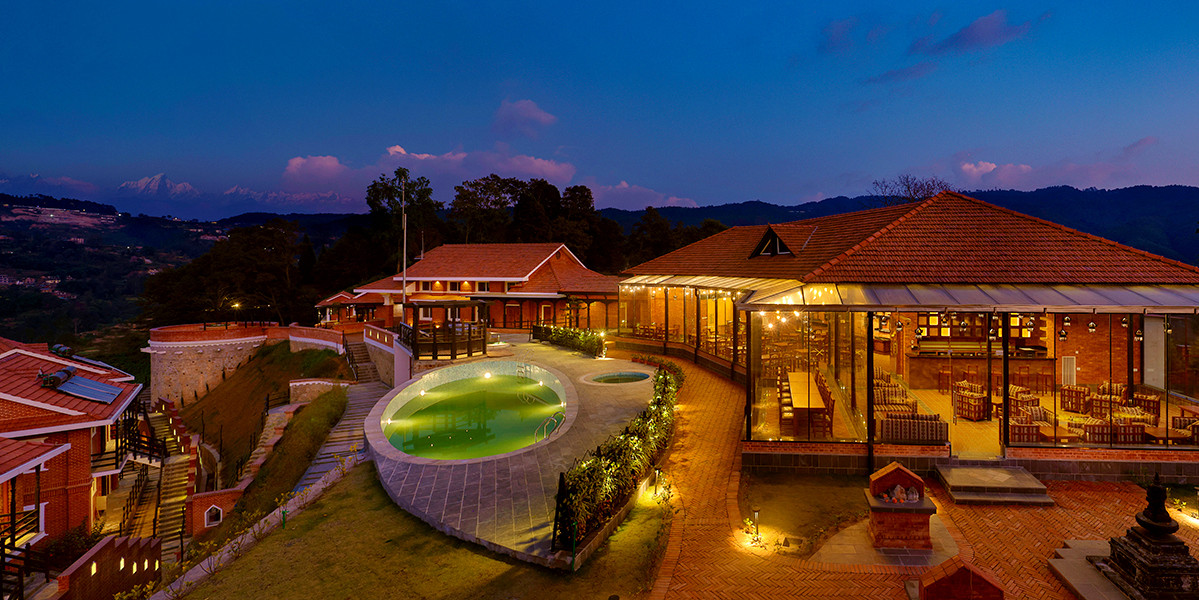
-
Use of Sustainable Building Materials and Practices: Many eco-friendly accommodations in Nepal are constructed using local, sustainable materials like bamboo, mud, and stone. These materials have a lower environmental impact and blend harmoniously with the natural surroundings.
-
Energy Conservation and Renewable Energy: Implementing energy-saving measures such as solar panels, energy-efficient lighting, and insulation helps reduce electricity consumption. Many eco-lodges and hotels use renewable energy sources to minimize their carbon footprint.
-
Water Conservation: Water conservation practices, such as rainwater harvesting, the use of low-flow fixtures, and water recycling systems, are key features of eco-friendly accommodations. This is especially important in areas where water is scarce.
-
Waste Management: Effective waste management systems, including composting organic waste, recycling, and reducing plastic use, are essential. Many eco-friendly accommodations actively encourage guests to minimise waste.
-
Supporting Local Communities: Eco-friendly accommodations often involve local communities in their operations, from employment to sourcing locally produced food and handicrafts. This not only boosts the local economy but also enriches the guest experience.
-
Organic and Locally-Sourced Food: Many eco-friendly accommodations in Nepal offer meals prepared with organic, locally-sourced ingredients, promoting sustainable agriculture and reducing the carbon footprint associated with food transportation.
-
Promoting Biodiversity: These accommodations often play a role in preserving and enhancing local biodiversity by maintaining gardens with native plants, creating habitats for local wildlife, and avoiding the use of harmful pesticides and fertilisers.
-
Cultural Sensitivity and Preservation: Eco-friendly accommodations are designed to reflect and respect local architectural styles and cultural heritage, offering guests an authentic and immersive experience.
-
Education and Awareness: Educating guests about environmental conservation, local culture, and sustainable practices is a common feature. This may include information booklets, guided eco-tours, and workshops.
-
Certifications and Eco-Labels: Obtaining eco-certifications or labels from recognised organisations can help in promoting these accommodations, as they provide a benchmark for sustainability and assure guests of their environmental commitment.
-
Marketing and Partnerships: Collaborating with travel agencies, tour operators, and online platforms that specialise in eco-tourism can help in effectively marketing these eco-friendly accommodations to a target audience interested in sustainable travel.
By promoting eco-friendly accommodations, Nepal not only enhances its appeal as a sustainable tourism destination but also contributes significantly to the conservation of its natural and cultural heritage.
Economic Benefits to Rural Areas
The infusion of economic benefits into rural areas is a key aspect of sustainable tourism in Nepal. This approach not only helps in alleviating poverty in these regions but also supports the overall development and conservation efforts. Here's how sustainable tourism contributes economically to Nepal's rural areas:
-
Employment Opportunities: Tourism creates numerous job opportunities in rural areas. Locals can find employment as guides, porters, lodge staff, and in other service-oriented roles. This reduces the need for migration to urban areas for employment.
-
Development of Local Enterprises: Tourism encourages the development of local enterprises such as homestays, small hotels, restaurants, and shops selling local crafts and produce. This entrepreneurial growth boosts the local economy.
-
Enhanced Infrastructure: With the growth of tourism, there's often an improvement in local infrastructure, including roads, telecommunications, and healthcare services, which benefits both tourists and local residents.
-
Preservation of Traditional Crafts and Practices: Tourists are often interested in local crafts, traditional farming practices, and cultural performances, providing a market for these traditional skills and thus encouraging their continuation.
-
Income Diversification: Tourism provides an alternative source of income for rural communities, which is particularly important in areas where traditional livelihoods like agriculture are no longer sufficient.
-
Community Development Projects: Many sustainable tourism initiatives reinvest a portion of their profits into local community projects, such as schools, health clinics, and environmental conservation efforts.
-
Improved Standards of Living: The influx of income from tourism can lead to improved standards of living in rural areas, with better access to education, healthcare, and improved housing.
-
Market for Agricultural Products: Tourism increases the demand for local agricultural products, benefiting local farmers and encouraging sustainable agricultural practices.
-
Cultural Exchange Benefits: Rural communities benefit culturally and educationally through interactions with tourists, leading to a broader understanding of the world and new perspectives.
-
Sustainability Incentives: Economic benefits provide an incentive for communities to engage in sustainable practices and conservation efforts, as they directly see the rewards of preserving their natural and cultural heritage.
The economic benefits brought by sustainable tourism to Nepal's rural areas are multifaceted, contributing to improved livelihoods, infrastructure development, cultural preservation, and overall community well-being.
Educational Aspect
The educational aspect of sustainable tourism in Nepal plays a pivotal role in enhancing both the visitor experience and the long-term sustainability of tourism practices. Education in this context is twofold: it involves educating tourists about Nepal's environment, culture, and sustainability practices, and it also includes providing educational opportunities and benefits to local communities. Here are some key elements:
-
Awareness of Environmental Conservation: Educating tourists about the importance of conserving Nepal's diverse ecosystems, wildlife, and natural resources is crucial. This includes information on preserving biodiversity, minimising waste, and respecting wildlife habitats.
-
Cultural Sensitivity Training: Tourists often receive education on local customs, traditions, and etiquette to ensure respectful interactions with local communities. This includes understanding religious practices, traditional norms, and appropriate behaviours at cultural sites.
-
Community Education Programmes: Many sustainable tourism initiatives include educational programmes for local communities. These programmes can range from teaching sustainable farming practices and environmental conservation to providing basic education and vocational training.
-
Educational Treks and Tours: Some tours are specifically designed to be educational, offering insights into Nepal's culture, history, and environment. These might include guided nature walks, cultural heritage tours, and visits to conservation projects.
-
Workshops and Skill-Sharing: Tourists often have the opportunity to participate in workshops that teach traditional Nepalese crafts, cooking, or other cultural skills. This exchange of knowledge is beneficial for both tourists and locals.
-
Interpretation Services: Guides and interpretive signage at cultural and natural sites educate visitors about the significance of these sites, the local ecosystem, and conservation efforts.
-
Research and Study Programmes: Nepal's diverse environment makes it an ideal location for research and study programmes related to ecology, wildlife conservation, and sustainable development. These programmes often involve both international researchers and local experts.
-
School and Community Outreach: Some tourism operators collaborate with local schools and communities to provide outreach programmes, which can include environmental education, health awareness, and cultural preservation activities.
-
Promotion of Local Knowledge: Encouraging tourists to learn from local experts and community elders helps preserve and disseminate traditional knowledge and stories.
-
Benefits from Tourism Revenues: A portion of tourism revenues is often allocated towards funding educational facilities and scholarships in rural areas, directly benefiting local communities.
Through these educational aspects, sustainable tourism in Nepal not only enhances the experience of tourists but also contributes to the empowerment and development of local communities, fostering a deeper understanding and appreciation of Nepal's rich cultural and natural heritage.
Global Recognition
Nepal's efforts in sustainable tourism have gained significant global recognition, reflecting the country's commitment to preserving its unique natural and cultural heritage while promoting responsible travel. This recognition comes in various forms and has several implications:
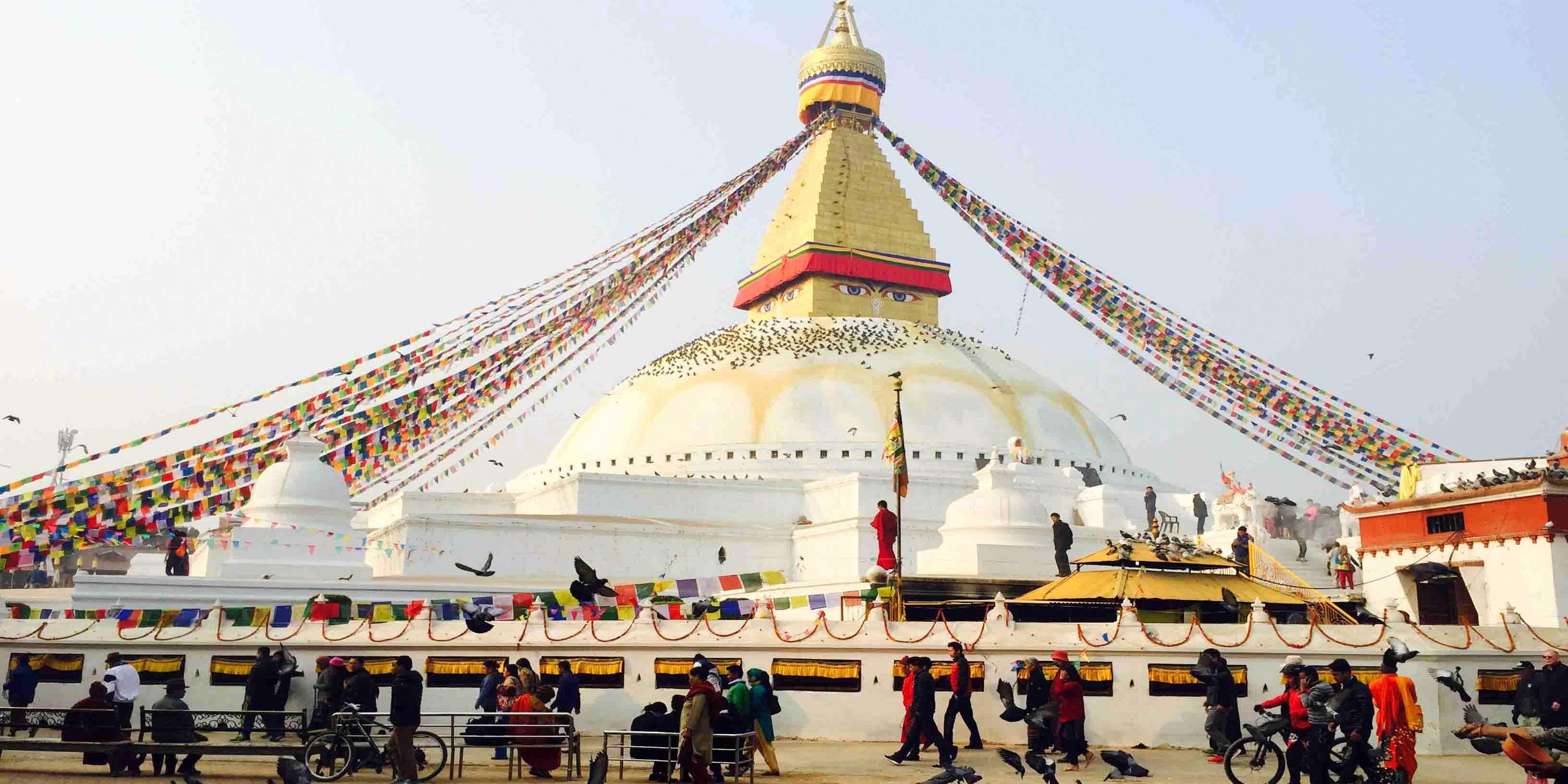
-
International Awards and Accolades: Nepal has received numerous international awards for its sustainable tourism practices. These awards highlight the country's achievements in areas such as community-based tourism, conservation efforts, and the development of eco-friendly tourism infrastructure.
-
UNESCO World Heritage Sites: Nepal is home to several UNESCO World Heritage Sites, including cultural landmarks like the Kathmandu Valley and natural wonders like Sagarmatha National Park (home to Mount Everest). The designation of these sites as World Heritage Sites underscores their global importance and the need for their preservation.
-
Feature in Global Travel and Tourism Platforms: Leading travel and tourism platforms often feature Nepal as a top destination for sustainable and eco-friendly tourism. This exposure promotes Nepal as a model for sustainable tourism practices globally.
-
International Partnerships and Collaborations: Nepal's focus on sustainable tourism has led to collaborations with international organisations, NGOs, and governments. These partnerships aim to share knowledge, provide technical support, and promote sustainable tourism practices.
-
Recognition in Environmental and Cultural Conservation: Nepal's efforts in conserving its biodiversity and cultural heritage have been recognized by global conservation entities. These recognitions validate the country's conservation strategies and efforts to protect endangered species and preserve cultural heritage.
-
Inclusion in Sustainable Tourism Indexes: Nepal often features in indexes and rankings that evaluate destinations based on their sustainability. Being recognised in these indexes helps attract tourists who are particularly interested in responsible and sustainable travel.
-
Global Media Coverage: The unique approach of Nepal towards sustainable tourism frequently garners attention in international media, showcasing the country's initiatives in eco-tourism, community-based tourism, and conservation efforts.
-
Influence on Global Sustainable Tourism Policies: Nepal's success stories in sustainable tourism serve as case studies and models for other countries developing their sustainable tourism policies. This influence extends Nepal’s impact beyond its borders.
-
Tourism Conferences and Forums: Nepal is often invited to participate in international tourism conferences and forums to share its experiences and insights in sustainable tourism, further enhancing its reputation as a leader in this field.
-
Certifications and eco-labels: Various tourism businesses in Nepal have received international certifications and eco-labels for their commitment to sustainability, enhancing the global credibility of Nepal’s tourism sector.
This global recognition not only honours Nepal's commitment to sustainable tourism but also plays a crucial role in encouraging ongoing efforts and investments in sustainable practices, ensuring the country remains a top sustainable tourism destination.
How to improve Sustainable Tourism in Nepal Important?
Improving sustainable tourism in Nepal is essential for the long-term viability and success of its tourism industry, and there are several strategies that can be employed to enhance its effectiveness:
-
Strengthening Policy and Regulation: The government can play a crucial role by enacting and enforcing stronger policies and regulations that support sustainable practices in tourism. This includes guidelines for environmental protection, cultural preservation, and equitable economic benefits for local communities.
-
Enhancing Community Involvement: Further empowering local communities in tourism planning and decision-making processes ensures that tourism development meets their needs and preserves their cultural heritage. This can be achieved through community-based tourism projects.
-
Investing in Infrastructure: Developing sustainable infrastructure, such as renewable energy sources, waste management systems, and eco-friendly transportation, can significantly reduce the environmental impact of tourism.
-
Promoting Education and Awareness: Increasing awareness among tourists and locals about the importance of sustainability is crucial. This can involve educational campaigns, training programs for tourism operators, and incorporating sustainability into school curricula.
-
Diversifying Tourism Offerings: Expanding beyond popular trekking routes to lesser-known destinations can help distribute tourism benefits more evenly and reduce the environmental strain on heavily trafficked areas.
-
Encouraging Responsible Business Practices: Incentivizing hotels, tour operators, and other businesses in the tourism sector to adopt sustainable practices through certifications, awards, and promotional benefits can drive industry-wide change.
-
Leveraging Technology: Utilizing technology for sustainable management of tourism, such as data analytics for visitor flow management and digital platforms for promoting eco-friendly options, can improve efficiency and impact.
-
Enhancing Visitor Management: Implementing effective visitor management strategies in popular tourist areas can help mitigate the impacts of overtourism, ensuring a balance between visitor satisfaction and conservation.
-
Fostering International Collaboration: Collaborating with international organisations and other countries can bring new ideas, expertise, and funding to support sustainable tourism initiatives in Nepal.
-
Monitoring and Evaluation: Regularly monitoring and evaluating the impacts of tourism on Nepal's environment, culture, and local communities can provide insights for continual improvement and adjustment of strategies.
By focusing on these areas, Nepal can not only enhance the sustainability of its tourism sector but also ensure that it remains a desirable destination for eco-conscious travellers from around the world.
Sustainable Tourism in Nepal is vital for safeguarding its natural beauty and cultural heritage. It stands as a crucial pillar in environmental conservation, economic development, and cultural preservation. This approach ensures the long-term viability of Nepal's tourism sector, setting a global example for responsible and ethical travel. Sustainable tourism is about balancing current needs while securing Nepal's treasures for future generations, aligning with the global movement towards responsible tourism. Nepal's commitment to sustainable practices not only enriches the traveler's experience but also cements its position as a leader in sustainable and responsible tourism globally.
FAQs for Sustainable Tourism in Nepal
Q. What is sustainable tourism in Nepal?
A. Sustainable tourism in Nepal refers to tourism practices that are environmentally responsible, culturally sensitive, and economically beneficial to local communities. It aims to minimise the negative impacts of tourism while maximising positive contributions to the conservation of natural and cultural heritage.
Q. Why is sustainable tourism important for Nepal?
A. Sustainable tourism is crucial for preserving Nepal's unique biodiversity, cultural diversity, and natural landscapes. It ensures the long-term viability of the tourism industry, supports local economies, and promotes global environmental and cultural conservation efforts.
Q. How does sustainable tourism benefit local communities in Nepal?
A. Sustainable tourism provides economic benefits to local communities through job creation, support for local businesses, and community development projects. It also empowers communities by involving them in tourism planning and decision-making processes.
Q. What are some examples of sustainable tourism practices in Nepal?
A. Examples include eco-friendly accommodations, responsible trekking practices, community-based tourism projects, conservation initiatives, and cultural preservation efforts.
Q. Can tourists participate in sustainable tourism in Nepal?
A. Yes, tourists can participate by choosing eco-friendly travel options, respecting local cultures and traditions, supporting local businesses, and engaging in community-based tourism experiences.
Q. How does sustainable tourism protect Nepal’s Environment?
A. Sustainable tourism practices include minimising pollution, managing waste responsibly, conserving natural resources, and protecting wildlife habitats. These efforts help preserve Nepal's diverse ecosystems.
Q. What role does the government play in promoting sustainable tourism in Nepal?
A. The government sets regulations and policies that promote sustainable tourism practices, supports conservation projects, and invests in sustainable infrastructure development.
Q. How does sustainable tourism align with global environmental Goals?
A. Sustainable tourism in Nepal contributes to global environmental goals by addressing issues like climate change, biodiversity conservation, and sustainable use of natural resources.
Q. Are there any challenges in implementing sustainable tourism in Nepal?
A. Challenges include managing the impact of increasing tourist numbers, ensuring community involvement, balancing economic benefits with conservation efforts, and infrastructure development in remote areas.
Q. What future trends are expected in sustainable tourism in Nepal?
A. Future trends may include an increase in eco-friendly travel options, greater emphasis on community-based and experiential tourism, and enhanced global collaboration for sustainable tourism practices.
For the Nepal tour, please click here.
If you are looking for different kinds of Nepal Tours or Trekking Packages, feel free to contact us.
